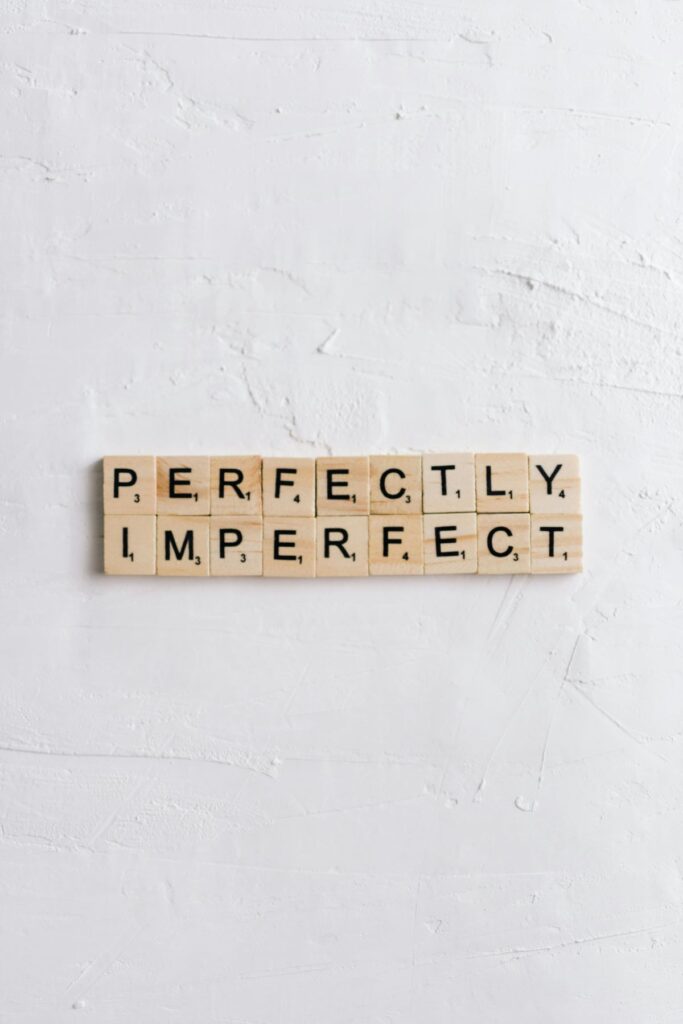Woman embracing herself, depicting what it feels embracing your flaws | Photo by Rafa Barros
A fulfilling life starts with self-acceptance. But most of the time, achieving it can feel like an uphill battle. Why?
Since then, perfection has always been glorified. Perfect skin, perfect lips, perfect shape, consistent achiever, and pleasant behavior—these traits put you on the pedestal where the crowd worships you like a saint.
And what of your flaws? Embracing your flaws seems like a sign of weakness—that you should surpass the limits of your nature; that you can escape from your imperfections. It’s time to break the chains of societal norms and embrace the fact that we are beautifully imperfect.
Where has civilization brought us? What have we become after millennia of evolution? Chet Shupe’s “Rediscovering the Wisdom of Human Nature” gives us a profound, fresh perspective on how far humanity has come.
Get a copy now at any favorite online bookshop, and may it guide you to your journey back to you. Check out Spiritual Freedom Press for interesting discussions.
Flaws and Their Role in Self-Identity
Photo by Özge Taşkıran
Your imperfections or shortcomings, otherwise known as flaws, are characteristics that deviate from societal norms. Having them does not mean you are weak—it’s only the society that tells you it’s a sign of weakness.
For thousands of years, society has taught us to strive for perfection. When we fail to conform to society’s definition of perfection, we feel like a personal failure, forcing us to avoid these flaws or hide them at all costs. At times, they have to be corrected, even in extreme measures.
In the Perspective of Self-Identity
Flaws are much more of a combination of subtle, complex qualities. Just as your strengths make you unique, so do your flaws. They’re a part of you.
The reality is that flaws are seen differently by each of us. What may seem as an imperfection to you may not be an imperfection to me. To you, that scar on your face messes with your overall look, but to me, it’s a beautiful mark I will always remember about you.
Embracing your flaws and imperfections begins with the understanding that they shape your personal perception. Aside from influencing how you view yourself, your flaws also shape how you relate to others.
Are you an impatient person? Do you get that certain feeling where you mirror someone’s struggles with impatience because you’re also struggling with it? What happens is that the person you relate to pushes you to confront your weaknesses and navigate ways to overcome them.
Do you see what happens? Your flaws also help you develop empathy and foster meaningful relationships with others.
The Dangers of Repression and Escapism
Avoiding your flaws by denying or hiding them can be harmful to you. Pretending they don’t exist essentially means you’re also rejecting your true identity.
Disconnecting from your imperfections as part of your identity causes feelings of inadequacy. When you strive for perfection, you end up hiding your flaws and forgetting what truly matters. You start to live an inauthentic life based on others’ expectations instead of your own desires and values.
Repressing your flaws can result in exhaustion and burnout. If you think that perfectionism leads to a better life, it doesn’t. Trying hard to meet unrealistic standards leads you to overwork or become unrealistically over-generous to the point that there’s nothing left for you.
That could be avoided if you start embracing your flaws and live a truthful existence.
Embracing Your Flaws Safely
Although embracing your flaws is not easy, and can feel overwhelming, there’s a safe and structured approach to it. The very first step is to nurture self-compassion while addressing insecurities. From there, the rest of the journey follows.
Photo by Leeloo The First
Self-Awareness
Tap into your traits and behaviors that you perceive as flaws. When you have those that you struggle to accept, try to identify where they come from. Maybe they’re rooted in societal judgments, personal experiences, or learned insecurities.
Shifting Perspectives
Reframe your flaws instead of seeing them as weaknesses. Look at them as opportunities for improvement. Perhaps it’s time not to hate yourself for being overly emotional but to love yourself for having deep empathy.
Compassionate Self-Talk
Instead of criticizing yourself for your imperfections, why not choose to be kind to yourself? Maybe you can tell yourself something like this:
“Dear self, you have failed to deliver the right answer during the oral assessment earlier. Probably it’s because you were preoccupied. Well, next time, make it a habit to study and review your lessons from time to time, okay? Let’s do this, self!”
Support Network
The journey to self-acceptance works best when you navigate it with trusted friends, family members, or professionals. You don’t have to face it alone. Count on the help of others.
Key Takeaway
Accepting your imperfections does not mean eliminating them. Embracing your flaws means integrating them into your sense of self. As you journey through each step, you honor your flaws. Doing so allows you to live a more authentic and free life.
When you embrace your whole self, you become emotionally stronger and foster more meaningful connections with others.



